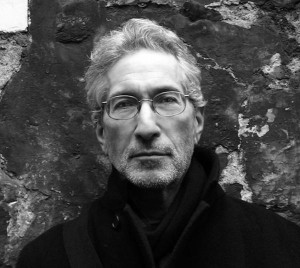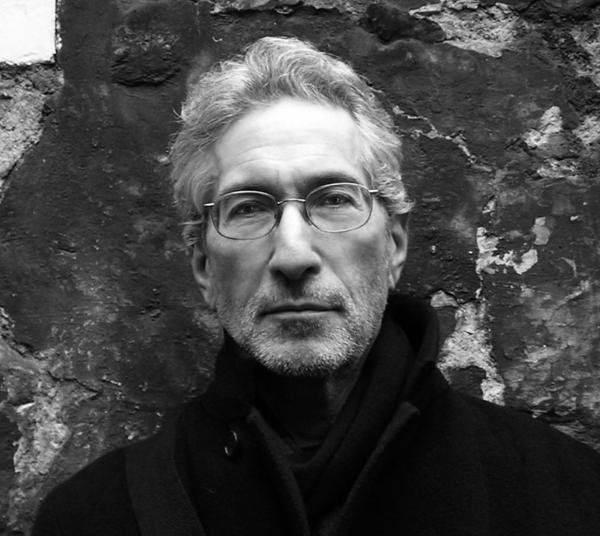
Queens College Professor Harold Schechter knows serial killers extremely well.
As a kid, he would stay up to watch Fright Night, where classic horror films such as “Frankenstein,” “Dracula” and “The Werewolf Man” were screened. Growing up, he drew an interest in dark materials, which played an important role in shaping the person he is today.
During his free time, Schechter enjoys writing. However, he not only just writes for leisure, but also paved a successful writing career with 36 books under his name. One of Schechter’s latest books, “The Mad Sculptor,” was nominated for the Edgar Award, bestowed upon the best American mystery of the year.
Like Batman, by day, he works as a college professor but by night, he is a successful true crime author who dwells into the minds of serial killers. Schechter is an expert on serial killers during the 19th and 20th centuries, which he researched through old newspapers, court records and museum materials. His studies influence the crafting of his stories and characters.
“There have definitely been cases where I’ve had to go to some very dark places in my head in order to get into the heads of the people I’m writing about. I have to understand them, feel their motivation. I try to project myself to some extent into the minds of these people in order to make them real to me and the reader,” Schechter said.
Born on June 28, 1948, Schechter grew up in a Jewish neighborhood in the Bronx. His academic pursuit took him to The City College of New York, where he completed his undergraduate studies. He continued his education and earned a master’s degree from Purdue University and PhD in American Literature from the University of Buffalo.
“After trying out different majors in college, I decided I wanted to write,” Schechter said. “I liked the life that being a college professor seemed to offer. You have lots of time. So I would have time to do my own writing,”
He began to teach at Queens College in 1975 and still teaches, even after 40 years of service.
Additionally, he is a husband to fellow QC professor and poet Kimiko Hahn. They have been married for over 10 years.
“It’s never a dull moment in our household,” Hahn said.
His first published book was a textbook called “Patterns in Popular Culture: A Sourcebook for Writers,” which explores the mythical archetypes such as the alter ego and trickster figure in modern pop culture.
In 1989, Schechter wrote his first true crime book, “Deviant”. This book focused on the true story of Ed Gein, whose crimes inspired films such as “Psycho,” “Texas Chainsaw Massacre,” and “The Silence of the Lambs.” Since then, he, on average, published a book every year.
“People always ask me how I write so many books. If you write one page every day, by the end of the year you’ll have a book,” Schechter said. “People say I’m so disciplined, but after a while it becomes a habit. You just sort of have to do it, otherwise you become anxious. You train yourself to do it every day.”
The author’s writing style is highly praised. They capture all the different elements of his research in great detail. His writing is referred to as “full” and “electric.”
“I’m really tough on language and his language is gorgeous. He is very, very careful with his choice of words. He really knows what he wants to say. From a poet’s point of view, it doesn’t get any better,” Hahn said.
When he is not investigating the minds of serial killers, he teaches an American literature and myth and archetype courses. Jaime Zahl, a QC graduate who took one of his courses, expressed excitement when she learned that he wrote books outside the academic realm.
“I respect how serious he was about students. We never diverted away from the works we were reading. He asked each student a question about them and, if they didn’t read, their grade would be docked,” Zahl said.
At a young age, Schechter aspired to be a comic book artist because of influential artists like Steve Ditko. He grew up drawing and collecting comic books. He owned thousands of Golden Age superhero comics, which he eventually had to sell. He even applied for a job at Marvel Comics.
“I got accepted to the High School of Music and Art, but decided to go to Bronx Science because my parents never thought I would make money as a comic book artist,” Schechter said.
In 1990, he wrote a book called “Start Collecting Comic Books.”
Over the years, his collecting hobby drastically changed. He now collects 19th century poison bottles, which he gathered over a 100 bottles.
“I got him his first one. He was actually writing a story on female serial killer who had poisoned her victims,” Hahn said. “It looked like a bottle from the 1800s and that’s the era he writes about so I said ‘perfect,’”
Schechter’s favorite movie of all time is “King Kong,” the 1937 version.
“This movie helped shape my childhood imagination and represented everything movies are about in terms of transporting viewers into this world of wonder and adventure, using this technology to create this magic world,” Schechter said.
One of his favorite books of all time is “Moby Dick,” a book he often refers to and uses in class.
“It is the greatest American novel ever written. It made me want to become a professor of American literature. When I first encountered it, it was so exciting on some many levels the notion that you could spend your career reading and teaching these types of literature,” Schechter said.
In his American literature course, he teaches Henry David Thoreau’s and Ralph Waldo Emerson’s works. However, their literature may prove to be difficult for students. Summer Medina, also a QC graduate, believes Schechter did a good job covering the material.
“Most of it is pretty dense. His passion for teaching the material made it an enjoyable class,” Medina said. “His extra credit papers were great too because who wouldn’t want to write about transcendentalism and ‘Fight Club’?”
Schechter’s favorite time of the day to write is early in the morning. Sometimes a sentence can take him hours to write. He believes he needs to get a paragraph perfect before proceeding to the next one.
“One useful piece of advice I read years ago was from Ernest Hemingway,” Schechter said. “He said when you stop writing for the day, you stop with the first sentence with where you’re going to start the next day. You should always end with the first thought on the next paragraph.”















I just finished reading “Bestial,” and am simply amazed with the author’s skillful handling of moods, descriptions, tempos of the country, and individual thoughts and attitudes! I have been transported to another time in history; by chance, I happened to look off the pages of my book, and realized I’m dressed in 21st Century clothing – and not that of “the roaring 20’s”. Harold Schechter is truly a remarkable writer!
How does he do it? Unbeknownst to us, the reader, he has, somehow, hypnotized us. I’m sure of it!
My next book? “Nevermore.” After all, that’s how Mother selected my name, so it’s my destiny to read it!
I can’t wait for Amazon to hurry up and deliver it.
Lenore